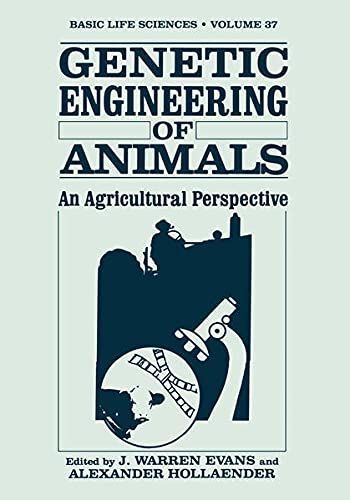
Genetic Engineering of Animals An Agricultural Perspective
J. Warren Evans Department of Animal Science Texas A&M University College Station, Texas 77843 In the near future, improvement of domestic animals for the production of food and fiber is poised to undergo a revolution by the utilization of recent breakthroughs and advances in molecular genetics, embryo manipula tions, and gene transfer systems. Utilization of these techniques will have a wide impact on animal agriculture by improvement of production effi ciency via manipulation and control of many physiological systems. The end result will be to decrease production costs, increase food production and quality, and lower food costs. Health and well being of domestic and other animals will be improved as a result of new methods of disease diagnosis, vaccine production, and disease prevention practices. Genetic engineering also offers the possibility of utilizing animals for the development of pharmaceutical products to benefit society. Research progress will be en hanced via manipulation of the gene pool. The objectives of this Conference were to discuss the current status of animal bioengineering and to realistically assess the potential applica tions of current and future genetic technologies for the production of food and fiber to meet the needs of our hungry world, and to provide animal sci entists who may wish to utilize bioengineering in current or future re search programs with current background information regarding concepts, ap plications, and methodologies.